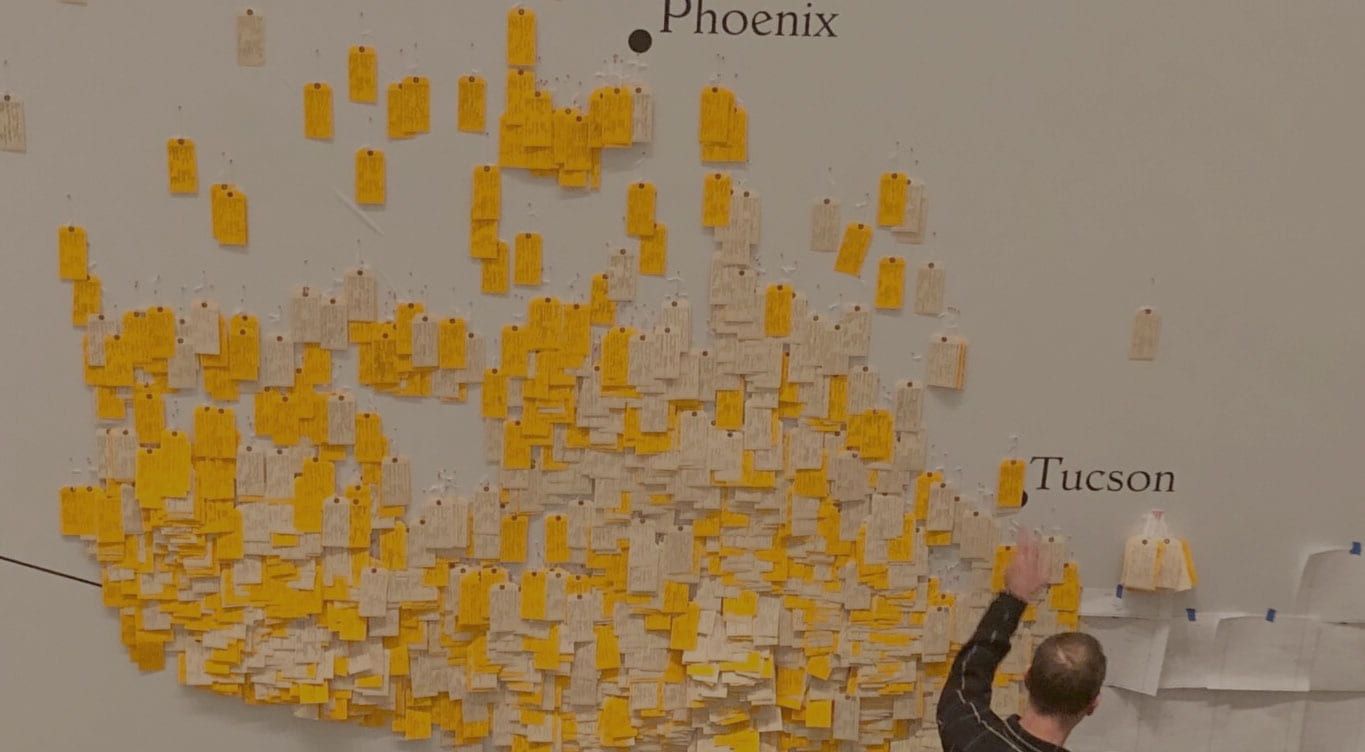
The Gallery, Collection, and Department affirm this as a radically inclusive space. You are welcome here.
We recognize that museum work creates a tension between curating, preserving, and presenting objects from the past and a moral obligation to confront bias and inequities entangled with those activities. Exhibitions necessarily highlight certain stories over others, and these choices have social effects. We recognize the potential of museum work to create, sustain, and hide structures of inequality. We commit to transparency, reflection, and the hard work of striving for equity and inclusion in our Gallery, Collection, and Department.
We pledge to be anti-racist. Our departmental community is diverse and includes many who have been historically excluded from museology, art history, and adjacent fields. We pledge to cultivate an open, inclusive, and safe environment to increase diversity and ensure that all are welcomed and supported. We are committed to use our privilege to work on behalf of, and with, others to fight injustice and to make UWM a radically inclusive institution.
We also acknowledge in Milwaukee that we are on traditional Potawatomi, Ho-Chunk and Menominee homeland along the southwest shores of Michigami, North America’s largest system of freshwater lakes, where the Milwaukee, Menominee, and Kinnickinnic rivers meet and the people of Wisconsin’s sovereign Anishinaabe, Ho-Chunk, Menominee, Oneida and Mohican nations remain present.
We view this commitment as a living and evolving promise. It is inspired by statements published by the UWM Department of Art History and the Portland Art Museum.
About
Hostile Terrains at the University of Wisconsin-Milwaukee examines the intersection of space, policy and violence in and around the US. This exploration is catalyzed by the Hostile Terrain 94 installation authored by the Undocumented Migration Project and directed by anthropologist Jason De León. Hostile Terrain 94 illustrates the consequences of government policy at the US-Mexico border. That border is a checkpoint of territorial control through which thousands of migrants pass each year. Many are deterred or detained, and many perish. Hostile Terrain 94 simultaneously reveals the massive scale of that invisible tragedy and its irreducibly personal human impact. It also directs us to examine the hostilities of our own terrains.
Surrounding installations in the exhibit analyze hostile landscapes in and around Milwaukee. Faculty curators, students, and community partners explore the interrelationships of identity, space, policy, and violence from the perspectives of Native People, Black Americans, Women, and Life in the Pandemic, among others. In Hostile Terrains, Milwaukee and the US-Mexico border are linked conceptually by boundary-making activities — some government-led initiatives, some societal traditions — in which the marginalization of certain groups is the precondition for and consequence of hierarchical power, social, and physical violence, and oppressive policy. Our objective is to center and amplify the voices of the silenced, reveal the invisible injustices embedded in our landscapes, and to cultivate connections between allies and organizations fighting for rights in and beyond Milwaukee. This is a safe space for all students, staff, faculty, and community members regardless of immigration status, personal or group identity.

The Undocumented Migration Project’s Hostile Terrain 94 installation seeks to capture the scale of the violence and loss suffered by migrants in the Sonoran Desert, but also memorialize the individuals who have died in the crossing.
Hostile Terrains
September 30, 2021 – February 10, 2022
Gallery Hours
Monday – Thursday
10Am – 4PM
